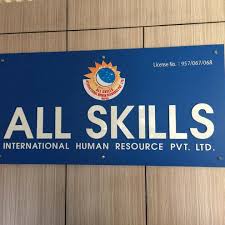
You may be curious about the qualifications required for a career as a project manager. These are some helpful tips to get you started on your career. Project management has many advantages. If you can manage a team well and delegate tasks, this job can be very rewarding. It will not only help you gain the skill set needed for the position, but it will save you a lot of time. Effective project managers are able to build relationships with customers, communicate effectively, and lead and motivate their teams.
Qualifications required
You can get a degree in business management, human resource management, or business. This is one of the best routes to becoming a project supervisor. This will give you a solid foundation in marketing, business, and communication. It will also help you develop leadership skills like problem solving and communicating effectively. Project managers also need to be good team builders, with the ability to boost team morale and motivate them. There are many qualifications that can be required to become project managers. A Bachelor's degree can help you get an entry-level position.
A project manager is someone who has the ability to effectively organize meetings and schedules. They should also have good interpersonal skills and be good communicators who can clearly communicate their vision and objectives to others. Meetings and reports require good communication skills. This position requires commitment to the company and high levels of responsibility. The success or failure the project will depend on your attitude.

Job growth
According to Project Management Institute's projections, project managers have a bright future. Projected industry's global gross domestic product is expected increase by $4.5 Trillion by 2016. 8.2 Million project-oriented workers will also be employed during this time frame, according to the Institute. The Institute does not have any statistics regarding the career outlook of project managers but expects that this position will grow.
According to Project Management Institute (PMI), there will be 25 million job opportunities for project managers around the world by 2030. Globally, this means there will be nearly 2 million more project managers every year. Project managers will be in high demand as entrepreneurs continue to increase. According to Bureau of Labor Statistics, the Bureau of Labor Statistics projects that there will be 6 percent more project management jobs by 2024. This means that there will be more than 505,000 additional project managers.
Education
To advance your career, you must be able to manage projects. Although most project managers have formal education, others can gain practical experience through internships or volunteer work. These are the essential steps for becoming a project manager. First, you need to have a bachelor's in project management or an equivalent degree in the relevant field. It can open doors to many possibilities in the world project management by getting your PMP certified.
First, identify areas of weakness in your existing knowledge. To fill in the gaps, attend seminars and workshops that are related to the field. This will allow you to improve your knowledge. You can also network with other project managers and join professional associations. Once you have gained the necessary experience, you will be able to take your skills and knowledge to the next level. Then, once you're ready, you can move on to the next stage and begin your new career.

Experience
This should be included on your resume if you have any experience as project managers. Highlight one or two of the most significant projects you have worked on and talk about the budget, timeline and team size. It is possible to include metrics that will help you measure the success of your projects. It is possible to include information such as how much it cost to build a hospital and how you dealt with roadblocks.
An experienced project manager can help you gain experience. Project managers are often promoted from assistants to managerial positions. They are able to get to know the job and the organization. They can also learn leadership skills from a mentor. Mentors can assist them in this transition, from project manager to assistant. Once a mentor is found, they can help you get started. Experience in project management is very important and is a huge asset to any professional looking to advance in their career.
FAQ
What role does a manager have in a company's success?
Managers' roles vary from industry to industry.
Managers generally oversee the day-today operations of a business.
He/she is responsible for ensuring that the company meets all its financial obligations and produces the goods or services customers want.
He/she makes sure that employees adhere to the rules and regulations as well as quality standards.
He/she plans and oversees marketing campaigns.
What is Six Sigma?
This is a method of quality improvement that emphasizes customer service, continuous learning, and customer service. This is an approach to quality improvement that uses statistical techniques to eliminate defects.
Motorola invented Six Sigma in 1986 as part its efforts to improve manufacturing.
The idea spread quickly in the industry. Today many organizations use six-sigma techniques to improve product design.
What's the difference between leadership & management?
Leadership is about inspiring others. Management is all about controlling others.
A leader inspires his followers while a manager directs the workers.
Leaders inspire people to achieve success. Managers keep their workers focused.
A leader develops people; a manager manages people.
What is Kaizen?
Kaizen is a Japanese term meaning "continuous improvement." It is a philosophy that encourages employees to constantly look for ways to improve their work environment.
Kaizen is founded on the belief of everyone being able to do their job well.
What are the steps that management takes to reach a decision?
The decision-making process of managers is complicated and multifaceted. It involves many elements, including analysis, strategy. planning. implementation. measurement. evaluation. feedback.
The key thing to remember when managing people is that they are human beings just as you are and therefore make mistakes. You can always improve your performance, provided you are willing to make the effort.
In this video, we explain what the decision-making process looks like in Management. We will explain the importance of different types decisions and how every manager can make them. Here are some topics you'll be learning about:
What are some common mistakes managers make when managing people?
Managers sometimes make their own job harder than necessary.
They may not be able to delegate enough responsibility to staff or provide adequate support.
Additionally, many managers lack communication skills that are necessary to motivate and direct their teams.
Some managers create unrealistic expectations for their teams.
Managers may choose to solve every problem all by themselves, instead of delegating to others.
Statistics
- 100% of the courses are offered online, and no campus visits are required — a big time-saver for you. (online.uc.edu)
- UpCounsel accepts only the top 5 percent of lawyers on its site. (upcounsel.com)
- Your choice in Step 5 may very likely be the same or similar to the alternative you placed at the top of your list at the end of Step 4. (umassd.edu)
- This field is expected to grow about 7% by 2028, a bit faster than the national average for job growth. (wgu.edu)
- Our program is 100% engineered for your success. (online.uc.edu)
External Links
How To
How can you apply the 5S in the office?
A well-organized workspace will make it easier to work efficiently. A neat desk, tidy space, and well-organized workspace are key to productivity. The five "S"'s (Sort. Shine. Clean. Separate. And Store) help to maximize space and ensure efficiency. This session will take you through each step and show you how they can fit into any environment.
-
Sort. Clear away clutter and paper so that you don’t spend time looking for it. This means putting things where you use them most often. Keep it near the spot where you most often refer to it. You should also consider whether you really need to keep something around -- if it doesn't serve a useful function, get rid of it!
-
Shine.Keep your belongings neat and orderly so that you spend less time cleaning up after yourself. Anything that could cause harm or damage to others should be thrown out. You might have many pens and need to put them away. A pen holder might be a good investment, as it will prevent you from losing pens.
-
Sweep. To prevent dirt buildup on furniture and other items, clean them regularly. A dusting machine is a great investment to keep your surfaces clean. You can also set aside an area to sweep and dust in order to keep your workstation clean.
-
Separate. Separating your trash into different bins will save you time when you need to dispose of it. Trash cans are usually placed strategically throughout the office so that you can easily throw out the garbage without searching for it. To make sure you use this space, place trash bags next each bin. This will save you the time of digging through trash piles to find what your looking for.